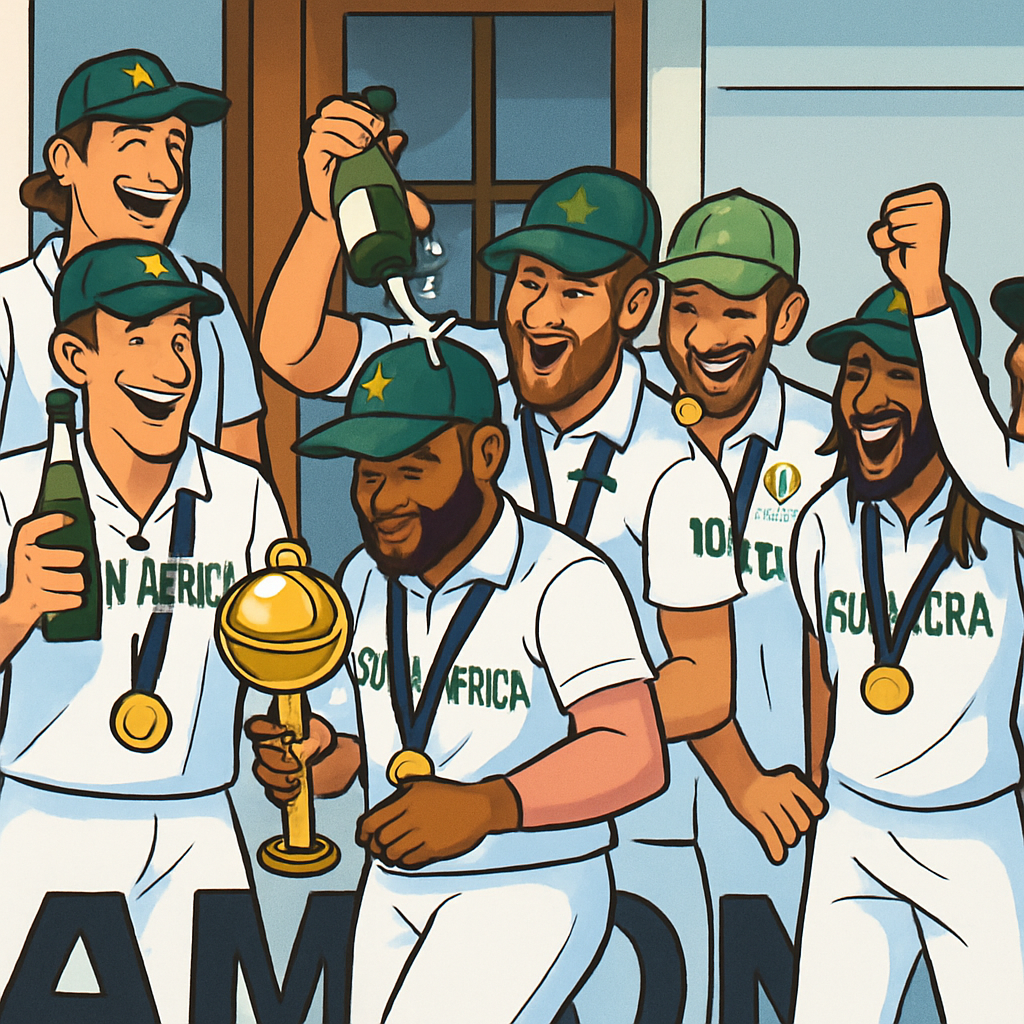LONDON — South Africa’s cricketers have long carried the unwanted label of "chokers" in high-stakes matches, but on a sunlit afternoon at Lord’s, they shattered that narrative with a historic victory over Australia to claim the World Test Championship (WTC) title. In a match marred by verbal volleys from the Australians, the Proteas showed remarkable composure, proving that mental resilience can triumph over even the fiercest sledging.
From Chokers to Champions: A Redemption Story
For years, South Africa’s cricket team has been haunted by near-misses in ICC tournaments—most notably the 1999 and 2007 World Cup semifinals—where nerves seemed to get the better of them. But under the leadership of captain Temba Bavuma and coach Shukri Conrad, this squad rewrote history. "This isn’t just a win; it’s a statement," Bavuma declared after the match. "We’ve carried that ‘chokers’ tag for too long. Today, we buried it."
The victory was built on a foundation of disciplined bowling, gritty batting, and, most importantly, mental toughness. Australia, known for their aggressive on-field banter, tried to unsettle the Proteas—particularly targeting young opener Tony de Zorzi and middle-order stalwart Aiden Markram. But South Africa’s players refused to be rattled. "We knew they’d come hard at us verbally," Markram said. "But we focused on our game. The best response was letting our bats and balls do the talking."
Australia’s Sledges Fall Flat
Australia’s attempts to disrupt South Africa’s concentration were relentless. From Pat Cummins’ pointed remarks to Nathan Lyon’s constant chirping behind the stumps, the sledging was as fierce as their bowling. But the Proteas, prepared for the psychological warfare, stood firm. Key moments included:
- Day 2: De Zorzi, after being called "soft" by Cummins, responded with a defiant 89.
- Day 3: Kagiso Rabada, after a heated exchange with Steve Smith, dismissed him with a searing yorker.
- Day 4: Keshav Maharaj, taunted about his batting, hit the winning runs with a six.
Rabada, who took a match-winning 5/62 in the second innings, summed it up: "They tried to get under our skin, but we’ve played enough against Australia to know that’s their game. We stayed calm, stuck to our plans, and that’s why we’re holding the trophy."
The Turning Point: Maharaj’s Heroics
With South Africa needing 72 runs on the final day and four wickets in hand, the match hung in the balance. Enter Keshav Maharaj, the unassuming spinner, who played the innings of his life. Facing Cummins and Mitchell Starc, he counterattacked with fearless strokeplay, including three boundaries in an over off Starc. His unbeaten 38 sealed the win, sparking wild celebrations.
"I’ve dreamed of this moment since I was a kid," Maharaj said, tears in his eyes. "To do it at Lord’s, against Australia, after all the talk… it’s surreal. This team has heart, and today we showed it." His performance earned him Player of the Match honors, a fitting reward for his composure under fire.
What This Win Means for South Africa
Beyond the trophy, this victory marks a cultural shift for South African cricket. The "chokers" tag had become a psychological burden, but this squad—blending experience (Dean Elgar, Rabada) and youth (Gerald Coetzee, de Zorzi)—has redefined the team’s identity. "We’re not just a team that competes; we’re a team that wins," Conrad emphasized in the post-match press conference.
The win also validates Cricket South Africa’s (CSA) investment in domestic structures and player development. After years of administrative turmoil and player exodus to T20 leagues, this triumph signals a resurgence. Key factors behind their success:
- Red-ball focus: CSA prioritized Test cricket, ensuring players were available for domestic first-class matches.
- Mental conditioning: Sports psychologist Dr. Henning Gericke worked closely with the squad to build resilience.
- Leadership: Bavuma’s calm demeanor and tactical acumen were pivotal.
Conclusion: A New Era Begins
As South Africa’s players lifted the mace at Lord’s, the ghosts of past failures were finally laid to rest. This wasn’t just a win; it was a masterclass in mental strength, proving that even the most storied sledging tactics can be overcome with focus and belief. "We’ve turned the page," Bavuma said, holding the trophy aloft. "This is just the start." For a team once defined by heartbreak, the future has never looked brighter.

